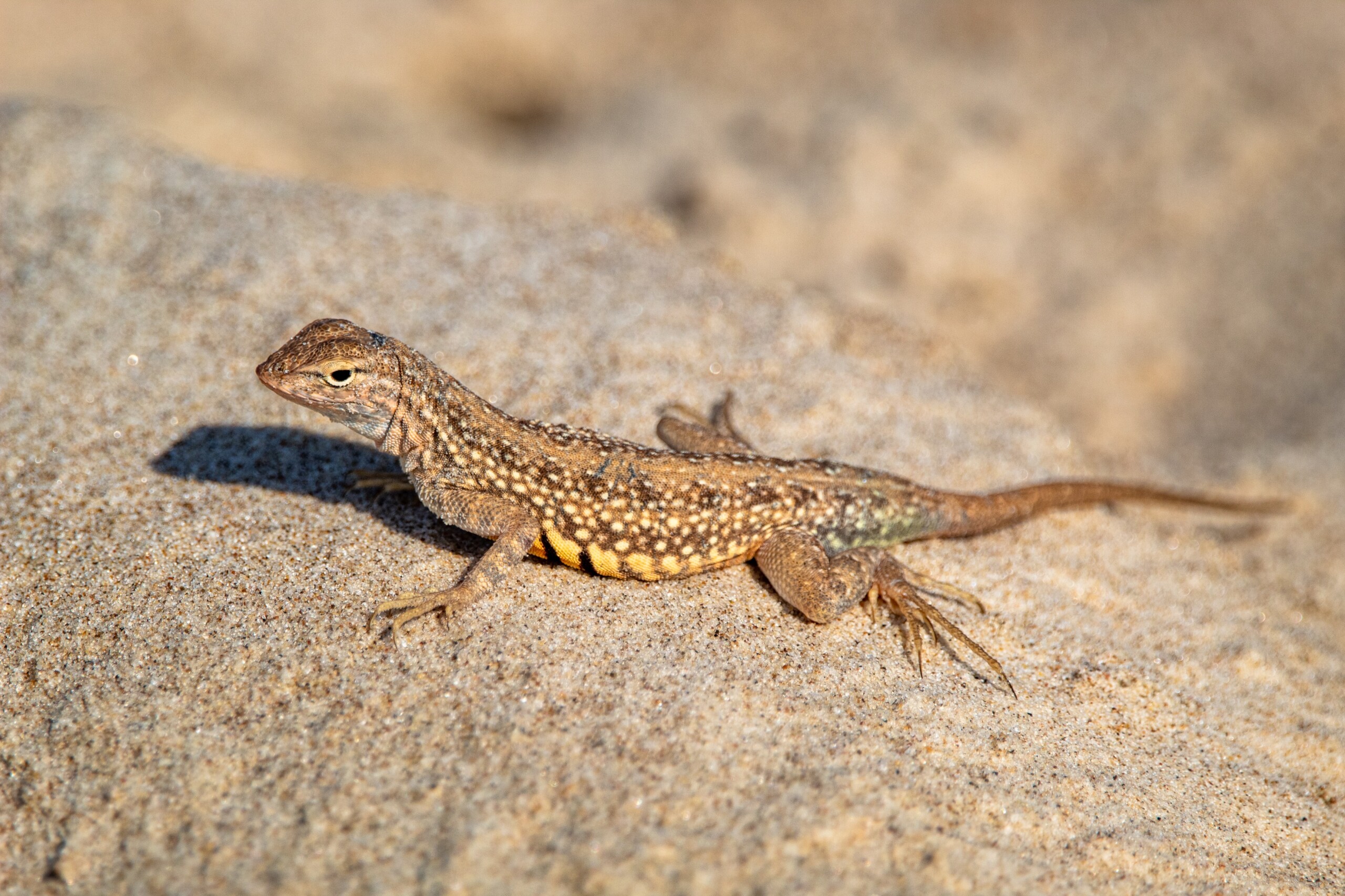Issues
New partnership formed to improve conservation efforts. The National Fish and Wildlife Foundation (NFWF) on Thursday announced a partnership between six oil and natural gas companies to provide greater support for conservation efforts in the Texas Permian Basin and New Mexico. The partnership, the Pecos Watershed Conservation Initiative, will work with federal agencies, private landowners and local communities to identify conservation opportunities to improve water quality and species habitat.
The companies have committed $3.5 million over three years for on-the-ground conservation projects, an amount that has been matched by NFWS. In a joint statement, the corporate partners commented, “The Pecos Watershed is a unique and extraordinary resource, and we are proud to partner with the National Fish and Wildlife Foundation to ensure that the development of our nation’s oil and natural gas resources goes hand in hand with protecting wildlife and improving the quality of life for local communities.”
Partner companies include Anadarko Petroleum Corporation, Chevron, ExxonMobil subsidiary XTO Energy Inc., Noble Energy, Occidental Petroleum and Shell Oil.
Committee approves Migratory Bird Treaty Act amendment. This week, the House Committee on Natural Resources passed the “Strengthening the Economy with Critical Untapped Resources to Expand (SECURE) American Energy Act,” which included an amendment offered by Rep. Liz Cheney on the Migratory Bird Treaty Act (MBTA).
The amendment would update the MBTA so that “the law does not prohibit any activity ‘proscribed’ by Section 2 ‘that is accidental or incidental to the presence or operation of an otherwise lawful activity.’” Advocates of the amendment say existing MBTA language causes confusion and has led to “overzealous” guidance on energy operations. The amendment passed by a vote of 20-14.
In a press release, the Independent Petroleum Association of America (IPAA) praised the energy bill stating, “This bipartisan legislation expands access to natural resources on federal lands and provides commonsense reforms to create certainty for producers and a fair return to American taxpayers.”
In the News
Lawmaker working to ‘invalidate’ the Endangered Species Act. Washington Post. The congressman who said he “would love to invalidate” the Endangered Species Act is closing in on his goal. Rep. Rob Bishop, R-Utah, recently shepherded five bills out of the Natural Resources Committee he chairs that would dismantle the law piece by piece. Many Republicans on the panel say the proposals are necessary changes that would modernize the 1973 law. Democrats and conservationists say the bills would whittle away the law’s ability to save wildlife from extinction. One measure would force the federal government to consider the economic impact of saving a species rather than make a purely scientific call. Another would require the U.S. Fish and Wildlife Service, which administers the act along with the National Oceanic and Atmospheric Administration, to defer to data collected by states as the “best scientific and commercial data available,” although state funding related to the act accounts for a small fraction of that supported by the federal government. Under a third proposal, citizens and conservation groups would be stripped of a powerful tool that allows them to file court claims against the government when they believe its protections fall short.
Preferred Sands awarded certificate of inclusion into the Texas Conservation Plan. Oil & Gas 360 (Press release). Preferred Proppants, LLC (“Preferred Sands” or “Preferred” or the “Company”), one of North America’s leading manufacturers and providers of high-quality sand and innovative proppant technologies, today announced the Company was awarded a Certificate of Inclusion into the Texas Conservation Plan (“TCP”) for the Dunes Sagebrush Lizard (“DSL”). The Certificate of Inclusion was issued by the Texas Comptroller for Public Accounts for Preferred’s West Texas sand mines, which are currently under construction. The proactive initiative comes on the heels of a comprehensive vetting process in which Preferred sought the expertise of numerous third party environmental experts – including a former U.S. Fish and Wildlife Service official – to better protect any environmentally sensitive areas.
The Lesser Prairie-Chicken: Gone with the wind? The Revelator. The energy scarecrows rise south of Woodward and west into the panhandle, spreading widely across the landscape. This dry, warm environment once gave rise to some of the most dynamic ecoregions of what is now the United States. Short, sod-forming grasses that evolved with the climate set the western short grasslands apart from other kinds of prairies. The prairie’s proximity to the tropics funneled in an incredible diversity of insects, birds and mammals. Seeing the number of endemic species would have been as breathtaking as watching turbines fan across U.S. 270. But now, the region’s bird populations are among the fastest declining on the continent, and the turbine is the latest aggressor to swat native species out of existence. The flat, windswept plains seem to be made for renewable energy. Can the wind industry harbor as much hope for conservation as it does for renewable energy? One bird — the lesser prairie-chicken— will test that possibility.
Florida Keys mole skink denied protection by Trump administration. TC Palm. The Center for Biological Diversity on Monday filed a formal notice of its intent to sue the Trump administration for denying protection to the Florida Keys mole skink under the Endangered Species Act, according to a news release. The U.S. Fish and Wildlife Service denied the skink protection in October despite threats from flooding caused by rising seas, which are expected to inundate nearly half the lizard’s coastal habitat and underground burrows by 2060, the news release states. Along with climate change, the animal is also threatened by ongoing urban sprawl in the Keys.
Lawmakers approve plan to protect Monarch Butterfly habitats. Associated Press. Illinois lawmakers have approved a plan proponents say will help protect the habitat of monarch butterflies. The proposal would prohibit counties and towns from classifying milkweed as noxious or exotic weed. Milkweed is a primary food source for monarch larvae. Backers say it’s vital to plant more milkweed, not ban it. Environmental experts say over a dozen Illinois cities classify milkweed as noxious. However, some opponents say local communities should be able to decide whether to ban it. The Senate approved the plan 41-6 Tuesday. It’s headed to Gov. Bruce Rauner’s desk. Sen. Melinda Bush, a Grayslake Democrat, was a sponsor. She says Illinois has a unique relationship to the insect and they should be protected. Monarchs were named Illinois’ official insect in the mid-1970s after school children lobbied for the designation.
First deal to protect sage grouse in Nevada to be signed. Nevada Appeal. State wildlife, agriculture and other officials will join managers from Kinross Gold at the Legislative building Thursday to sign papers completing the first purchase of habitat credits to offset impacts to sage grouse habitat in Nevada. This is the first time the credit system set up under Nevada’s plan to manage and conserve sage grouse habitat has been used. The land purchased under this deal will protect 10,000 acres of habitat in Northern Nevada. “The Nevada Conservation Credit System is one of the shining examples of innovation and collaboration to come out of the historic bipartisan effort that kept the greater sage grouse off the endangered species list,” said Eric Holst, vice president of Working Lands Environmental Defense Fund.




